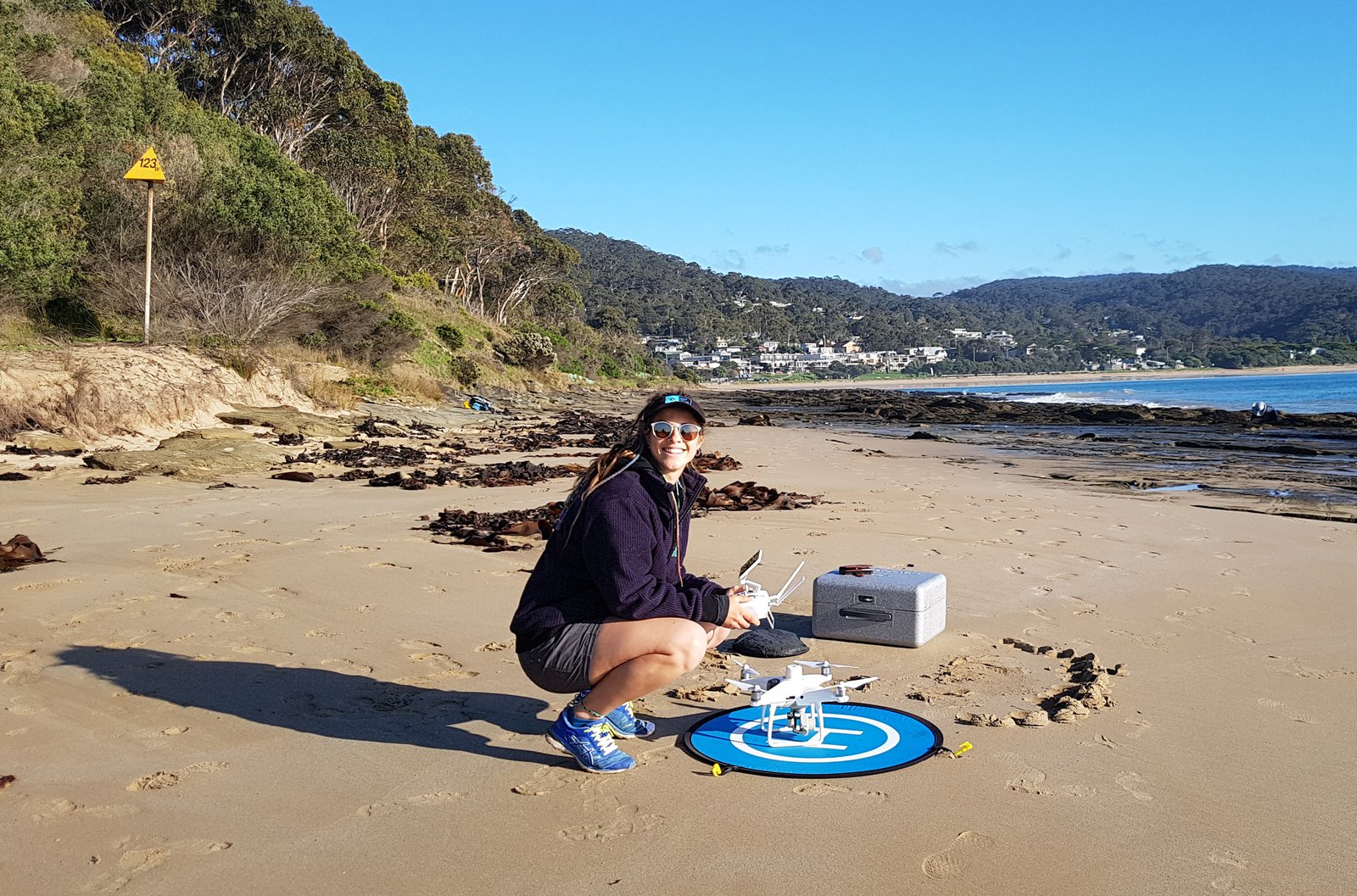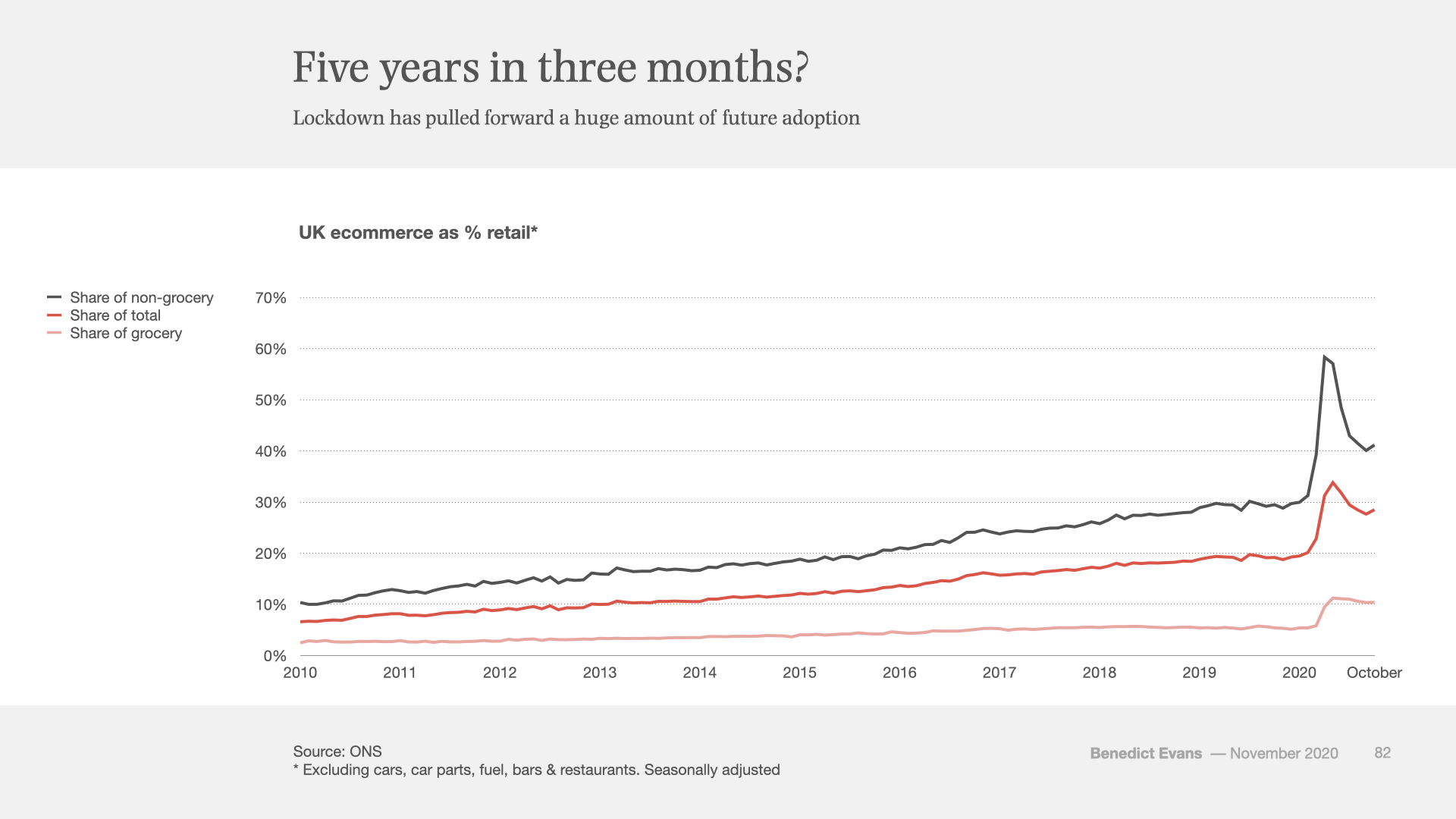Ignition Lane works with ambitious business leaders to apply the Startup Mindset to their technology, product and commercialisation problems.
This wrap goes out free to subscribers every Saturday morning. Don’t forget that every Monday at 2.05pm you can catch Gavin Appel discussing the week on the Startup Daily show on Ausbiz. If you miss it, you can catch up on the week’s shows here.
Here’s our review of the week.
Don’t click that link!
Pop quiz. What do these things have in common: one collapsed Sydney hedge fund (Levitas Capital), one embarrassed Australian e-litigation services business likely to lose many clients (Law In Order), multiple Baltimore schools closed and one outage of our favourite, highly reputable news site, the Daily Mail?
They all made headlines this week thanks to cybersecurity breaches.
It’s like reading the Hungry Caterpillar, but rather than food, businesses are being devoured. Then the hacker emerges from a cocoon to fly away with beautiful stacks of cash – quite literally in the case of Levitas Capital, where a “money mule” jumped on a Qatar Airways flight after withdrawing funds from an ANZ account.
More than $170 million has been stolen from Australian businesses since July 2019 through email scams alone. The increase in attacks has prompted the Australian Federal Police to create “Operation Dolos” – a partnership with law-enforcement agencies in Europe, the UK and US to combat email scams.
The Australian Prudential Regulation Authority this week also issued a warning to banks, insurers, super funds and their suppliers that they must start taking cyber security more seriously. Or else face enforcement action.
Complete repetitional destruction and millions of dollars in lost revenue is seemingly not enough of a threat.
While many of these attacks do use sophisticated tech to hack their way into systems, the majority of security breaches rely on some form of human help for that tech to work its magic. In other words, people and weak processes are the biggest point of failure.
We’re tricked into clicking a link unleashing a bot, replying to a fake email address with sensitive credentials, compromising security by using dodgy wifi or relying on email instructions without otherwise validating the person’s identity.
The Sydney hedge fund attack all started with a partner clicking on a fake Zoom invitation, compromising the firm’s email system.
Tell-tale signs of a dodgy email: The email uses a display name of “Zoom IP”, along with the date. The email address in the “from:” field doesn’t use a domain belonging to Zoom. The email subject is simply the date and time. Recipients who click are led to a fake Microsoft-branded login page, and asked to “sign in to Zoom with your Microsoft 365 account”. Nooo don’t do iiiiit.
The attackers then used the legitimate email to send a request to the firm’s trustee and administrator to transfer funds. The trustee should have verified the instructions. The administrator should have double checked. But they didn’t. This happened three times in the space of a few weeks. A total of $8.7 million was approved to be transferred. Ooops.
There are several simple actions that could have prevented the hack’s success: training on social engineering tactics and vigilance by the partner clicking the original email; use of an email security tool; or a two-factor approval processes by the trustee and administrator for unique transactions (e.g. both voice and email approval – or a secure system to manage such approvals).
If you’re an organisation of any size, this is a topic that needs your attention. Particularly if you think that:
- security is a fortification process, where the IT team and astute watchbots will guard you from every threat.
- complying with a security framework means you’re protected.
- you’re too small or irrelevant to receive an attack.
One single attack could easily wipe out all of your previous efforts to build a successful business. How prepared are you?
Rapid fire: News that caught our eye this week 🧐
Australia & NZ
Startups have been allocated $186 million over 4 years in Victoria’s budget: $40m for LaunchVic, $60.5m for a ‘Victorian Startup Capital Fund’ (early-stage co-investment), $10m for a ‘Women’s Angel Sidecar Fund’ (early-stage co-investment), $25.7m for a ‘Venture Growth Fund’ (venture debt, late-stage), $50m for an R&D loan scheme. This is a huge vote of confidence in the sector. It follows years of hard work by all parts of the ecosystem (startups, investors, LaunchVic, StartupVic, incubators, accelerators, co-working spaces), who have shone a light on the awesome potential and jobs that local startups are capable of creating.
https://twitter.com/fasttrackjudy/status/1331168566595338241
Startmate: proof that diversity in tech is possible if you try. Partner Lauren Capelin wrote a great piece sharing diversity stats for Startmate’s Summer21 cohort applications, which set a new record as the most gender-diverse application process in the history of Startmate. Almost 50% of teams including someone who identifies as a woman! That’s up from around 12% in 2016. There were also 9 First Nations Australians, 5 Maori-Pasifika people, at least 145 first-generation immigrants/refugees, at least 13 people who identify as having a physical or neurological disability and 10% of applicants identify as LGBTQ. Expressions of interest are open for Startmate’s First Believers (angel investing education) MVP. They’ve also put the call out for diverse mentors. Is that you? Know someone? Contact Lauren.
Xero is raising US$600 million, suggesting it might start making some big acquisition moves. Its share price continues to soar (above AU$135 this week). Stay tuned.
Zoox founder Tim Kentley Klay is back in the startup game with a next(next)gen autonomous vehicle endeavour – HYPR. This time he has the backing of Australia’s richest man, Andrew “Twiggy” Forrest and US-based venture capital firm R7 Partners, with a US$10 million seed round, valuing the company at US$200 million.
Hello world! Welcome to HYPR. So we build robots that learn to drive as they move. Pretty smart, eh! pic.twitter.com/QHD6V2gBGQ
— HYPR (@hypr) November 24, 2020
Morse Micro raised an extra AU$18 million, taking its total Series A round to $42 million. The company has created Wi-Fi HaLow chip; an ultra-low-power, long-range and secure Wi-Fi chip for IoT environments. Co-founder and CEO Michael De Nil says they’re redesigning connectivity:
Imagine a world without power cords, spotty connectivity, or empty batteries. We’re at an exciting inflection point for Wi-Fi HaLow, we’re both ramping up and expanding our teams in order to be a major force in the industry.
Medicinal cannabis-related business, Montu crowdfunded AU$2 million. Montu develops innovative cannabinoid-based products and makes them accessible to patients through a growing nationwide network of doctors.
Impact startup Like Family raised AU$2 million to tackle loneliness, led by Giant Leap Fund:
Jenna Leo and Mathieu Bertrand founded their NDIS-approved marketplace in 2016 to reduce social isolation and have built a community of more than 30,000 members and 3,000 carers who provide companionship and non-medical support for the elderly as well as people with a disability, injury or illness. It lets people find trustworthy, vetted social carers.
Go1 raised AU$7 million from AirTree (who previously passed on an investment in the company in 2016) extending its US$40 million May round.
Around the world (all in USD)
ecommerce in the UK is now 40% of retail sales, excluding groceries. Online grocery sales have doubled since pre-pandemic levels, now making up 10% of all grocery sales and it looks like that figure is holding. US online retail sales are closer to 20%.
Excellent analysis as always by Benedict Evans.
Amazon marketplace roll ups are the new thing in #dealsdealsdeals. SellerX raised a $118 million Seed round out of Berlin. US-based Heyday announced a $175 million raise. London-based Heroes announced a $65 million round. Perch raised $123 million last month. Thrasio was valued at $1.25 billion in its own debt round earlier this year. These businesses are all aiming to consolidate the best small businesses on Amazon’s marketplace, and then build out their own economies of scale within that ecosystem.
AWS experienced a prolonged outage on Thursday causing major ripple effects. AWS is Amazon’s internet infrastructure service – a backbone of many websites and apps. Any amount of downtime is unacceptable in the world of cloud infrastructure. Even more so in the lead up to one of the world’s biggest online shopping events – Black Friday.
Andreessen Horowitz raised $4.5 billion in new funds across an early stage and growth fund. The VC firm now has a team of 185 people!
Peter Thiel led a $125 million funding round into ATAI, a startup aiming to make psychedelic drugs to treat mental health disorders. ATAI partners with drug development companies, helping scientists to raise money, work with the regulators, and conduct clinical trials – all in exchange for a majority stake in the drugs they’re developing.
Salesforce is flashing cash. This week it invested in Mobile measurement and marketing company AppsFlyer at a $2 billion valuation. AppsFlyer’s goal is to accurately measure mobile ad spending and become a “democratizer” of mobile marketing. Salesforce is also rumoured to be in talks to acquire Slack. The deal was reported to value Slack at more than $17 billion, although its market cap rose nearly 40%, closing at $23 billion on the day of the news.
While we’re on the topic of Salesforce, its Einstein AI platform is now serving over 80 billion predictions per day, up from 6.5 billion predictions in October 2019! Einstein’s predictions can include internal and customer service answers for a given use case, like when to engage with a sales lead, how likely an invoice is to be paid, and which products to recommend to bolster sales.
Is the future of speaking… silent? UC Berkeley researchers say they are the first to train AI using silently mouthed words and sensors that collect muscle activity:
For example, it could be used to create a device analogous to a Bluetooth headset that allows people to carry on phone conversations without disrupting those around them. Such a device could also be useful in settings where the environment is too loud to capture audible speech or where maintaining silence is important.
Stripe is in talks to raise a new funding round valuing it at $70 billion, prompting valuation debates on the Twitters. Read this and make your own mind up. Those in favour:
PayPal is worth $240 billion
Shopify is worth $120 billion
Stripe is worth way more than $70 billion in my opinionhttps://t.co/0tbiQteM6X
— Richard Burton (@ricburton) November 24, 2020
Those against:
I think Stripe has a worse market position than Paypal. Stripe has no consumer user base. B2B customers are less brand loyal than consumers and Stripe stands to be more easily disrupted. I have been using stripe since the start, I would switch if someone charges less.
— Dafan Zhang Esq. ProfessorZ (@HighTechCounsel) November 25, 2020
In it to win it
It appears to be tech awards week. Who’s running the town? Here’s a quick run down.
Women take out NZ’s CIO awards
NZ’s CIO awards saw three women take out the top ‘people’ awards this week: Sally Copland, General Manager – Digital at Countdown named as CIO of the Year, Frances Valintine named for her outstanding contribution to business and technology in New Zealand and Dr Margaret Harris, CIO at ContainerCo named Emerging ICT Leader of the Year 2020.
Sally Copland (pic above) created CountdownX, the supermarket’s digital and data driven portfolio, by bringing eCommerce, loyalty, direct marketing, and IT together, and significantly bolstered internal digital technology capabilities.
Frances Valintine was recognised for her “immense impact on so many New Zealand businesses, students and professionals”. Amongst many other contributions, Valintine founded The Mind Lab to up skill an entire generation of teachers in emerging digital technologies and Tech Futures Lab, a Graduate School for professionals looking to learn contemporary skills and knowledge for the digital economy.
Dr Margaret Harris created ContainerCo’s ‘Grid’ logistics management solution, which automates the movement of empty containers from terminals and creates efficiencies by matching loads of containers to trucks leaving with a load.
Australia’s CIO50 awards were announced a few weeks ago. Check out the rankings here.
Deloitte Technology Fast 50 Australia
Half Dome, a Victorian media buying agency seeking to shake up the advertising sector, was announced as the overall winner of the 2020 Deloitte Technology Fast 50 Australia awards. 2390% growth over three years (the award requires more than $8 million in revenue). My Plan Manager and AutoGuru were runners up.
With 303% growth, BNPL fintech Zip Co took out the Leadership Award for growth with more than $50 million in revenues in the last reporting year.
The Oscars of science: The 30th Australian Museum Eureka Awards
Professor Dacheng Tao took out the Eureka Prize for Excellence in Data Science for his advanced deep learning theory and technologies, enabling the design of innovative algorithms for tasks that include object detection and image enhancement.
Dr Qilin Wang was awarded the Eureka Prize for Outstanding Early Career Researcher for his work getting power from poo (well, sewage if you want to be technical). Wastewater treatment currently accounts for 10 to 25% of municipal energy consumption, so Dr Wang’s research could result in big savings for councils.
Startmate alum, Propeller Aero was part of a group that won the Eureka Prize for Innovation in Citizen Science. A world-first initiative, the Victorian Coastal Monitoring Program helps local communities predict how beaches respond to storms and rising sea levels. The project’s open-source data informs coastal management and policy decisions.
Himalaya J. from Balwyn High School in Victoria made a song and animation explaining why water droplets on a window pane move closer together until they merge in a video called ‘The Secret Life of Droplets’. He won the Sleek Geeks Science Eureka Prize – Secondary.
Professor Robert F. Park won the Eureka Prize for Leadership in Innovation and Science. He has led world-class efforts to develop cereal varieties with inbuilt genetic disease resistance. His research has had a sustained global impact on the economic viability of cereal production and food security.
So… what’d you do today?
By the way, entries for the Startup Daily 2020 Startup of the Year Awards are open til Monday.
That’s a wrap! We hope you enjoyed it.
Gavin, Bex and the team at Ignition Lane
p.s. Did you miss our Blackbird Giants session ‘Sales as a Science’? Fear not! You can find a recording and key takeaways here. Powerhouse 30 minutes jam packed with knowledge nuggets by our very own sales master, Nikki Brown.
We love feedback – if you have any or want to continue the conversation, please reach out.
Watch Gavin live on AusBiz at 2pm on Mondays, when he opens the Startup Hour of Power.

























Trending
Daily startup news and insights, delivered to your inbox.